
views
Developing Your Tennis Skills

Take tennis lessons. First and foremost, tennis instructors must know how to play the game. If you want to be a tennis instructor but don’t have much experience playing, start taking lessons as soon as possible. Once you have the basics down, you’ll be able to get experience playing competitively. If you’re a kid, start taking lessons now to build your skillset.
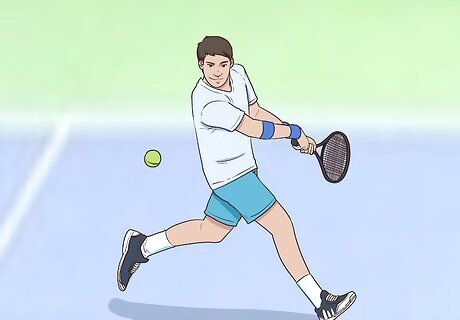
Play tennis competitively. It’s best to play competitively for several years at a tennis club. If you’re in high school, consider joining your school team. Playing tennis in college or professionally provides a major credibility boost, opening the door to many more coaching opportunities. Employers seeking full-time tennis instructors generally look for two to five years of experience playing competitively.

Keep up with rules and regulations. As a tennis instructor, you are responsible for teaching your students the rules of the game, so make sure you know them through and through. Stay updated on the International Tennis Federation (ITF) rules and review them regularly. You can find these online.
Getting Teaching Experience
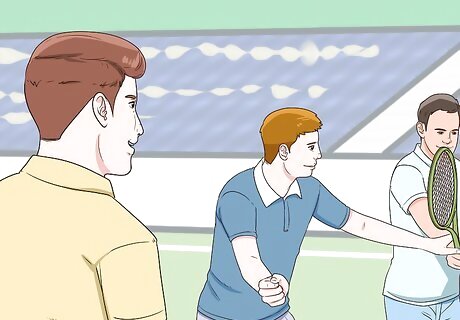
Assist a professional tennis instructor. Assisting a pro can help you learn effective coaching skills. Plus, they can give you advice on starting your own career. Check out your local tennis clubs or camps to see if any assistant positions are open.

Get a job at a public summer rec program. Public tennis programs are a popular summer activity for kids. These are a great place to start your tennis instructor career, and often hire instructors as young as 17 or 18. As a rookie, expect to start out teaching young beginners. Summer rec programs may have large classes of kids, which can be hard to manage, particularly as a first-time instructor. If possible, try to teach classes of only five or six kids. Some summer camps also offer jobs to rookie tennis instructors.

Teach at a tennis camp or club. Once you have some experience under your belt, you can apply for a more advanced position at a tennis camp or club in your area. Tennis clubs often offer lessons to students year round, and typically hire more experienced instructors.

Pick a position that aligns with your goals. You might want to make tennis instruction a full-time job, do it on the side for a little extra cash, or make it a hobby. Consider whether you want to work with beginners or more experienced players as well. Then, choose a job accordingly. You might volunteer to teach lessons at your local youth center, apply for a full-time job as a high school or club coach, or give private lessons.

Teach at your personal skill level. You should also take your skill level into account when deciding on a path. For example, if you want to coach professional tennis players, you’ll need to have played tennis professionally. On the other hand, several years of playing competitive tennis may be fine for coaching young kids or high school students.
Building Credibility
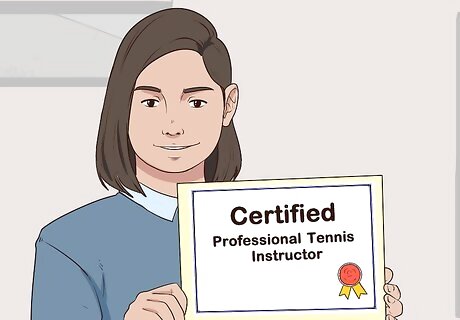
Get certified. If you’re looking to make a career out of tennis instruction, consider becoming a certified professional instructor. Most professional tennis organizations, including the United States Professional Tennis Association (USPTA) and the Professional Tennis Registry (PTR), offer certification programs. These usually involve an application, several workshops, and an exam. These programs generally offer different levels of certification, ranging from basic to advanced. If you want to coach elite athletes, you should opt for a more advanced certification.
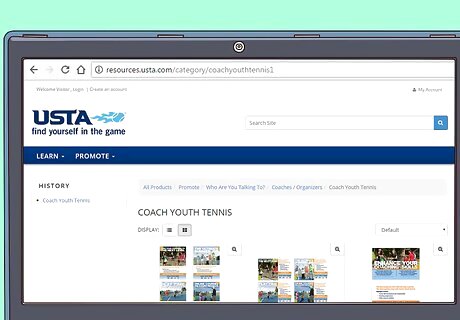
Take online courses and participate in coaching workshops. Being a good tennis instructor goes beyond knowing how to play the game. You also need to know how to communicate effectively with your athletes and successfully teach techniques and skills. Online courses and local coaching workshops can help you hone your coaching skills. If you get certified through a professional organization, they will usually offer additional workshops and courses.

Explore getting a degree in a related field. If you want to teach tennis in high school or college, it can help to get a degree in an applicable area, like sports science, nutrition and fitness, or physical education. Many of these degrees require internships, which can give you valuable exposure to the world of professional tennis coaching.
Starting a Private Tennis Instruction Business
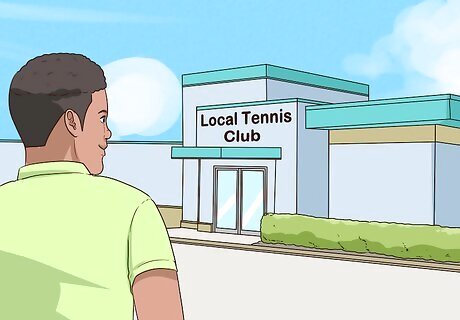
Build your client base. If you want to start a private tennis instruction business, you’ll need to acquire clients. Start by taking a few coaching jobs at local tennis clubs to help get the word out. As a bonus, you’ll gain useful coaching experience. It’s also helpful to network with other tennis instructors and sports coaches in your area so they can refer students to you. If you are in high school, you could ask friends' parents to spread the word or have your high school coach connect you with clients.

Market your services. Come up with a marketing strategy to reach more people. Consider creating a social media account or website for your coaching business. You can also post fliers in areas where potential clients are likely to be, such as schools or rec centers.
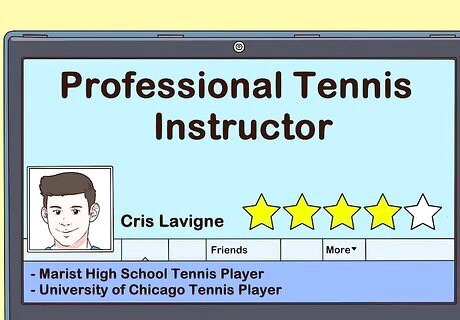
Distinguish yourself from other instructors. Research other tennis instructors and businesses in your area. Asses their approaches, strengths, and weaknesses. Try to find a way to make your services stand out. For example, if you are one of only a handful of local instructors who played tennis in college, highlight that fact to potential clients. If you’re a star high school tennis player, capitalize on that!
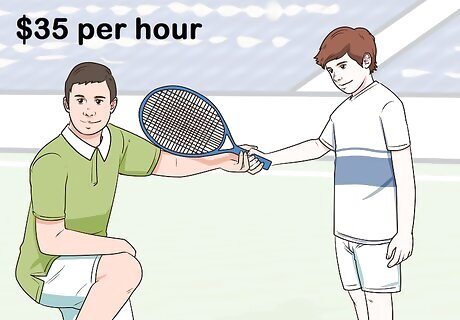
Price your lessons according to your skillset and the local market. If instructors with similar qualifications are charging $35 per hour, you should use a comparable price point. However, if you are much more qualified than the other instructors in your area--perhaps you were a top collegiate athlete or played professionally--then consider charging more.

Talk to other private instructors. They can give you advice on the successes and challenges they’ve faced during their time in the industry. It might be better to reach out to non-local instructors, though, since you’ll be competing for clients with the ones in your area.



















Comments
0 comment